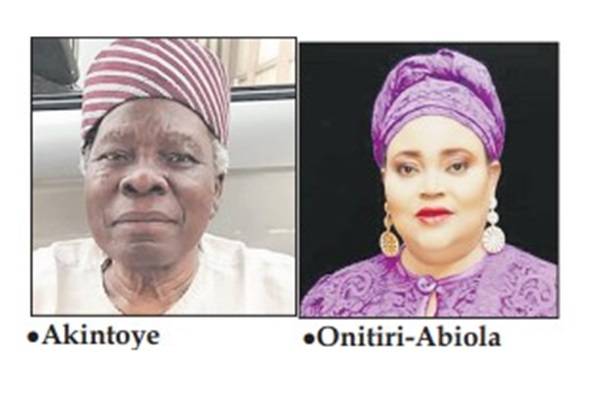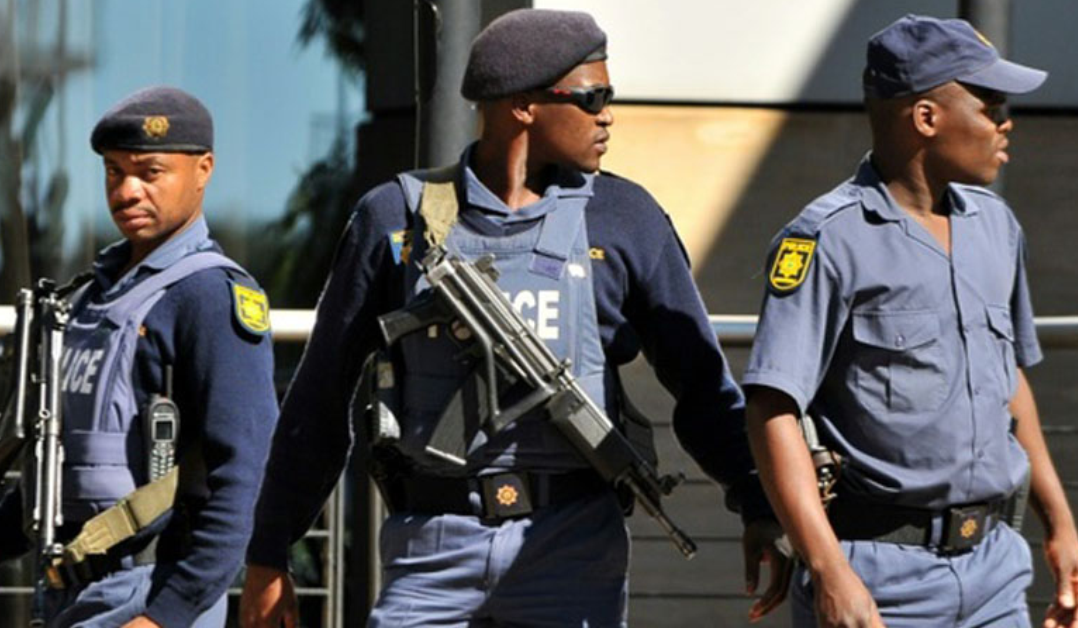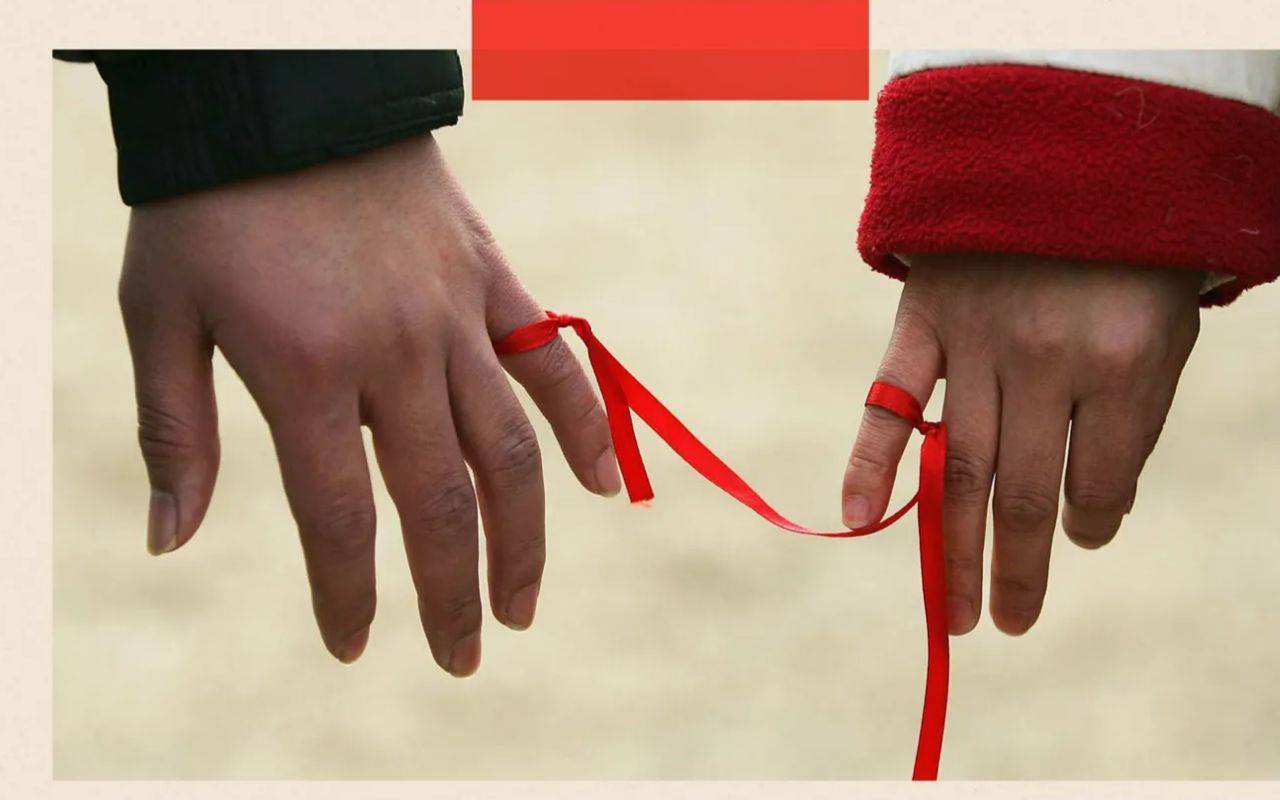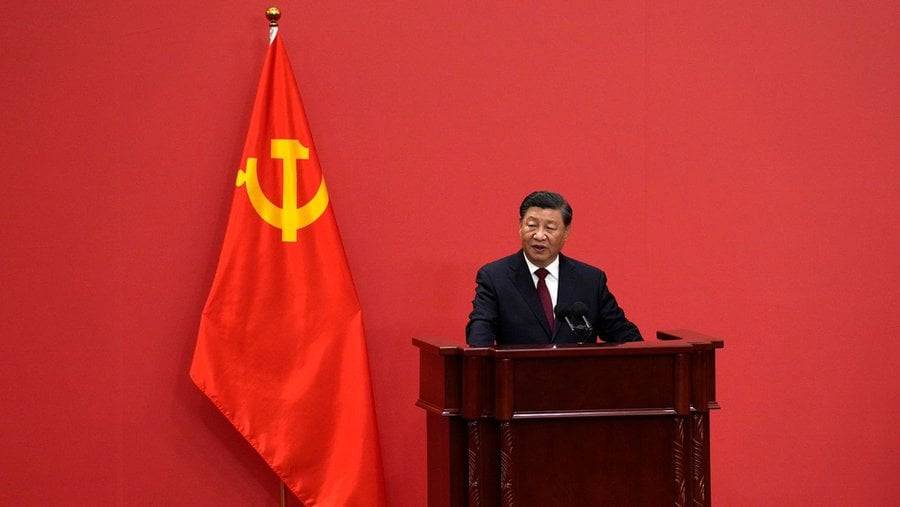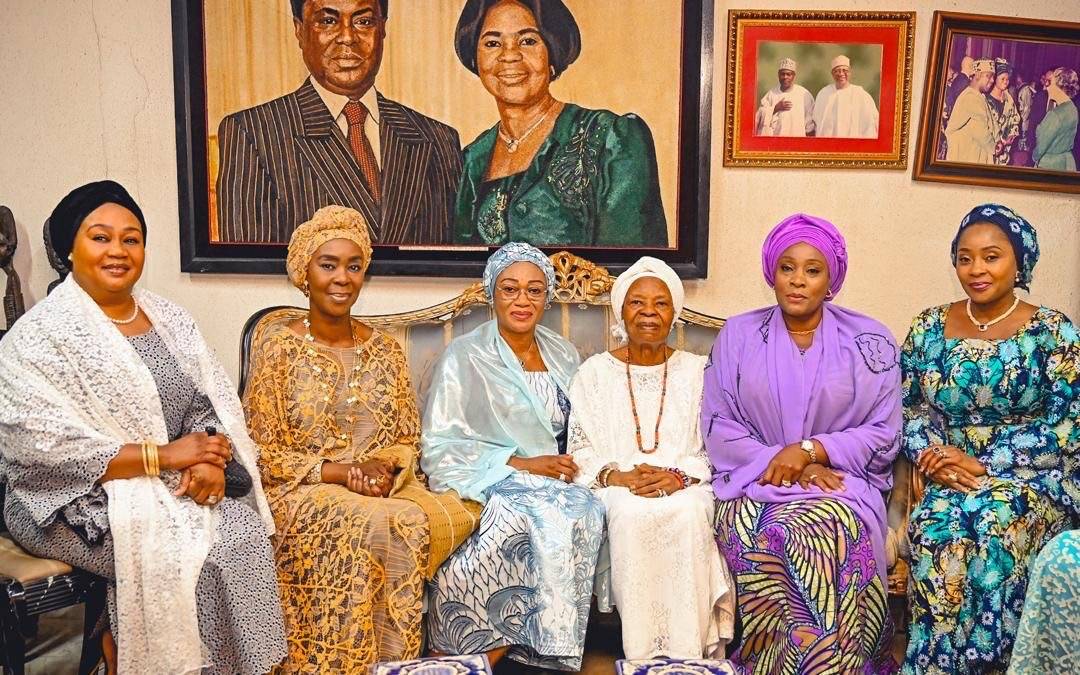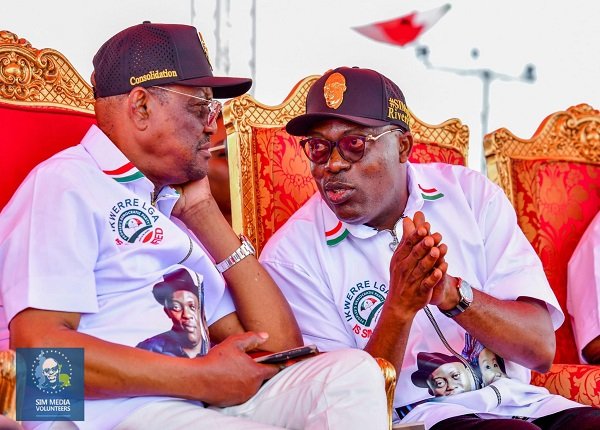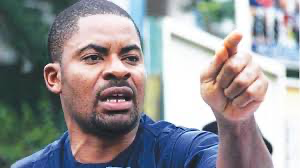By Palladium
In an open letter dated April 17 addressed to President Bola Tinubu, the duo of Banji Akintoye, a History professor, and Sunday Adeyemo, aka Sunday Igboho, insisted it was time the Yoruba of the Southwest became self-governing. They claimed to be acting on behalf of the Yoruba Self-determination Movement (YSDM). Their letter came about five days after Modupe Onitiri-Abiola, the self-described widow of the winner of the June 12, 1993 presidential election, MKO Abiola, declared the founding of the Democratic Republic of Yoruba in Ibadan, Oyo State, after dozens of Yoruba Nation agitators stormed the State House of Assembly to actualise a mandate they claimed to have received from the United Nations. For nearly a decade, a number of self-determination groups had weltered in the Southwest anticipating that republic. But if Mrs Onitiri-Abiola’s declaration was messianic and amateurish, Prof Akintoye’s open letter was both mistimed and misdirected.
The eminent historian, taking Mr Igboho in tow, anchored the letter on the disruptive tendencies of Fulani herdsmen in the region, and their January threat to ‘respond’ to the incarceration of the Miyetti Allah leader, Bello Bodejo, who was arrested for allegedly establishing and arming a Fulani militia in Nasarawa State. The YSDM letter also insinuated that the Fulani, having failed to install their kin, former vice president Atiku Abubakar, in office, have promised to make Nigeria ungovernable for President Tinubu. The three signatories to the letter, which included Ola Ademola acting as the Vice-Chairman of YSDM, did not indicate why they thought Fulani-baiting should suffice as a reason for secession, but they seemed to treat the agitation cavalierly by zeroing in on the Fulani and even going as far as transforming them into a sort of ethnic fulcrum upon which national stability rests. They seemed exasperated that no one could stop the destructive zeal of the Fulani, a zeal they asserted even the ameliorative act of restructuring the country could not contain.
Prof Akintoye and his co-signatories are right about the menace constituted by herdsmen to Southwest farmers and the exceptionalism which the Fulani have consistently claimed and displayed as a birthright. As argued in their letter, the agitators had placed the same demands and observations before President Tinubu’s predecessor, Muhammadu Buhari, to no avail. They are tired of going round in circles, they groaned, and are adamant about negotiating their exit from Nigeria. The letter may not be quite convincing, given the paucity of reasons they adduced for Yoruba self-determination, but the arguments of the three gentlemen touch on very sensitive contemporaneous experiences of the Yoruba, particularly the aspect of rampaging herdsmen and pillaged farmlands. The timing, too, appears hideous – barely one year into the presidency of a Yoruba politician who embodies the federalist and secularist principles lionised by the Southwest, and less than a week after the amateurish insurrection perpetrated by Mrs Onitiri-Abiola and her blundering and farcical agitators entertained the polity.
Prof Akintoye and his co-signatories asked for the constitution of negotiation teams between the federal government and YSDM not later than June to look into the grievances raised in the letter as well as ultimately give effect to the call for Yoruba independence. The storm troopers of April 12 and the April 17 letter writers will, however, not be heeded, for the Yoruba in general and the Tinubu administration have no illusions about the presumptuousness of the agitators. For years, a feeling of angst and a wistful expectation of what an independent Yoruba could accomplish had wafted across the Southwest, but they had never conducted a plebiscite to give concreteness and legitimacy to their disparate and formless aspirations. It is true that some groups had briefly toyed with open rebellion in the region, but that feeling had ebbed and flowed with the mood and spirit of the times. On the whole, and this is where Prof Akintoye and his co-signatories erred very badly, the dominant Southwest leadership elite have never really advocated separation, not during the coup madness of the First Republic, nor even after the disgraceful and counterproductive annulment of the June 12, 1993 presidential election, and interestingly not during the recent rampage of herdsmen. The Yoruba are adamant about fighting for what they believe, including things as esoteric as principles and ideologies, not to talk of their detestation of cheating and unfairness, but they have really never unanimously talked about secession or even self-determination.
Prof Akintoye’s letter will not gain traction, any more than Mr Igboho’s activism and Mrs Onitiri-Abiola’s humiliating insurrection will cause significant ripples in the region or in Abuja. The agitators presumed to know what the region wanted, but refused to sensitise it sufficiently enough to get a critical mass of followers. Mr Igboho tried to do some sensitisation of his own, but his efforts were desultory, megalomaniacal, theatrical, and ultimately futile. It was clear he lacked the experience, intellect, and temperament to inspire the Yoruba. He, however, seemed to recognise his shortcomings and sought to mitigate them by associating with the eminent professor, but he came to grief much quicker than he had the chance to remedy his failings. Mrs Onitiri-Abiola, however, dispensed with all niceties and pretensions and went slam-bang into full-scale rebellion. It was unsurprising that she came an appalling cropper as melodramatically as her inflated delusions blew up. Prof Akintoye should know better, particularly because of his age and learning, but he also fared badly in those tasks from the beginning. Held hostage by his lack of restraint, impatience and poor team play, his campaign to rouse the Yoruba into rebellion was inevitably doomed.
Decades of being rooted in political opposition could not prompt the Yoruba into secession. Now that one of their sons is in office, they will even be less inclined to countenance any kind of insurrection. It is shocking the Yoruba Nation agitators failed to appreciate these linkages. The late Chief Abiola showed how the Yoruba could transit from opposition to the presidency, and made it look simple. Another of their sons, President Tinubu, simply dusted the late chief’s rule book, single-mindedly applied it, and was able to dismantle the barricade that stood between the region and the presidency. He is today sitting pretty in office, probably contemplating how to remake Nigeria along the lines of his ideological and political leanings. That task, had it fallen into the hands of the gifted Obafemi Awolowo, former Western Region premier, would still have been onerous. In the hands of both Chief Abiola and President Tinubu, the task would be no less easy. But years of tutelage under leading national political heavyweights and decades of forming and servicing friendships and associations all over the country may have helped them acquire skills and virtues capable of promoting real and quantifiable change. Success is of course not guaranteed, but failure is remoter than when such skills were either absent or widely denigrated.
If remaking the wobbly Nigerian structure seems impossible, it should lead Prof Akintoye and those who think like him to review and rejig their activism and agitation templates. The wheel cannot be reinvented, it is said. But the agitators, now fortunately led by a historian, should search out examples and experiences around the world that best fit the Nigerian model. Nigeria is not the former Soviet Union which broke apart into 15 states in 1991 under the dead weight of economic stultification and ideological retardation, thus freeing many subordinate states and satellites. Nigeria is also not Czechoslovakia whose founding in 1918 towards the end of World War I was rooted in the politics of the dissolution of the Austro-Hungarian Empire, the ineptitude of its leaders that prompted the 1989 Velvet Revolution, and the final breakup in 1992. Instead, the Yoruba Nation agitators might wish to look at the history and politics of Canada, Switzerland and Belgium in order to derive inspiration for their self-determination agitation.
Prof Akintoye may also wish to cite the inspiring example of the Republic of Estonia (Pop., 1.5m), the first Soviet satellite state to declare independence in 1988 even before the USSR disintegrated. As this writer noted two Sundays ago, Nigeria and President Tinubu must not be complacent by regurgitating the vexing mantra of ‘Nigerian unity is non-negotiable’. Nigeria is and should be negotiable, and sooner rather than later it must be renegotiated if only to steal the thunder of agitators. Until 1966, Nigeria was a fairly balanced republic anchored on regionalism. That federation was the product of a negotiated constitution. Unschooled in the art of politics and ignorant about the conceptual underpinnings of nations, the military scrapped federalism as a veritable anchor of nationhood in 1966. The agitations of people like Prof Akintoye and Mrs Onitiri-Abiola, and of groups like the Indigenous People of Biafra (IPOB), Boko Haram and bandits are sending coded messages to the country: reform/restructure or die. It is up to the current political elite to decipher those coded and laden messages if the country is not to sunder.
Culled from The Nation


